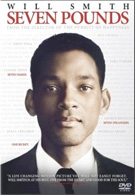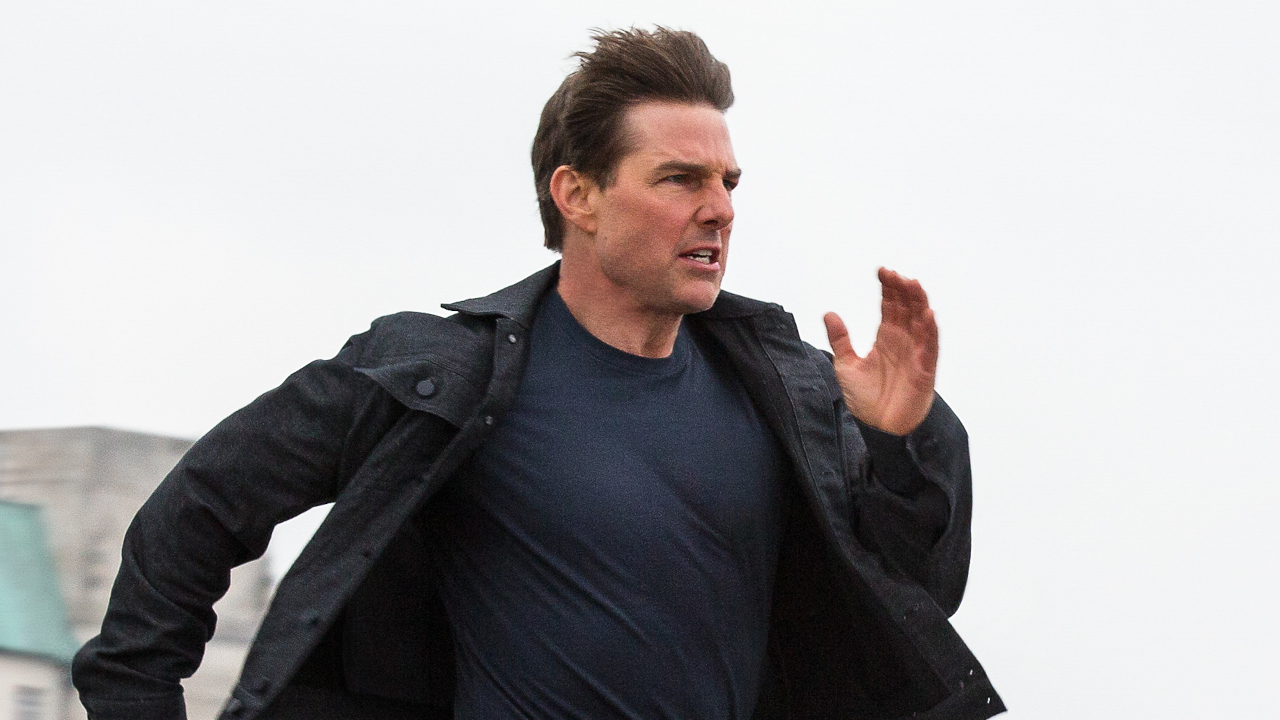When one watches a super depressing movie, one wants to walk out of said movie feeling like they have been depressed for a reason. For example, Revolutionary Road was highly depressing in the name of early feminism. Philadelphia was depressing in the name of the rights of people with AIDS. Not that every depressing film has to have that heavy of a theme, but there has to be a reason for its existence. This is exactly what Seven Pounds is missing, a raison d’etre. At the end of the film I was left feeling empty and emotional but without a purpose. The entire movie feels like those days just as you are getting over the flu when you are left lethargic and unmotivated; the film is pointless, meandering, and soul-crushingly sad. Seven Pounds opens with Will Smith speaking to a 911 operator. He says “There has been a suicide.” She asks “Who is the victim?” to which he responds “I am.” So we know right off the bat that our protagonist is probably going to commit suicide at the end of the film. We then find out, through a series of clues, that he is planning on giving a handful of people something in his will. What he will give them is a complete mystery until the very end of the film. The plot is built around sustaining a Murder She Wrote-level of mystery throughout the entire film. There is not one moment where the actors in the film can just breathe and forget that they are in the mist of an enigma; it is omnipresent at all times. Of course, the depressing nature of the film is also ubiquitous, as we know that our protagonist is suicidal and that his love interest is dying of congenital heart failure. What a pair they make.
Part of what makes Seven Pounds even worse than it needs to be is that most the plot is left to mystery, but when it comes to showing images, not enough is left to the imagination. There is a car accident involving Smith’s wife in the film that we get clips of throughout. The clips are graphic, bloody and utterly unnecessary. Much of the script follows suit. A lot of the dialogue feels overly graphic and manipulative. At one point Smith casually says to his landlord, after he asks how long he will be staying, “I was planning on dying here.” Death is treated like another character in the film, since most of the characters in the film have one foot in the grave. The final scene, Smith’s character’s final act, is over the top and unforgettably awful. The images and coarse words that the film leaves its audience with are terrifying.
Another thing that is extremely frustrating about the film is that you get the feeling that this is just another opportunity for Will Smith to show off another aspect of his acting “abilities.” Many of Smith’s films only exist to showcase one aspect of his persona, and Seven Pounds is no different. In the movie he is a serious, strange yet exceedingly good guy. He pretty much plays the exact same role as he did in 6 Degrees of Separation, except he’s a little older, a little sadder and a lot more buff. He sulks his way through this entire film. His bottom lip is pushed out throughout in a perpetual pout that I’m assuming is supposed to be confused with acting. Yes, he cries perfectly watery tears that drench his straight face, the mark of a true actor, but those moments to not outshine the monotony of the rest of his performance.
I believe that this movie was intended to be a study on the nature of goodness as it pertains to human behavior. Smith’s character is obsessed with figuring out each of his beneficiary’s true characters. At one point he calls up a blind man (Woody Harrelson) and berates him by calling him a virgin and yelling “What color is the ocean!?!” at him. This exercise is, apparently, to decipher whether or not the man is truly good, or just faking it for the public. This scene is painful and unnecessary, just like the movie itself. This might have been an interesting exploration into the darker regions of human behavior, had it not been so clear that the movie is trying to make you feel something. The movie feels manipulative the whole way through. I do not appreciate being made to feel bad for no reason what-so-ever. No thank you. The disc for Seven Pounds is surprisingly complete and well organized. There is one long featurette about the making of the film called “Seven Views on Seven Pounds”, a behind the scenes casting featurette, one short featurette about the poisonous jellyfish that are in the film and another short one about the printing presses used in the film. The disc also contains deleted scenes and feature commentary with the director, Gabriele Muccino. Although some of the special features are quite short, the overall package is extremely thorough; we really get a peek under the skin of Seven Pounds.
The long featurette called, “Seven Views on Seven Pounds” is broken down into smaller portions that give us seven perspectives on the making of the film: writer, producers, director, location manager, designer, editor, and composer. The only real lackluster point of view is from the composer, the rest are alive with passion for the film. The designer talks about how he wanted to mood inside of Smith’s character’s house to be a metaphor for life as a peach: at first it is plump and beautiful but then, after a few weeks, it is rotted and unappetizing. He speaks of how the rotten peach was his inspiration for decorating much of the sets and how he even drew some colors from this metaphor. The editor and I completely agreed on problem points of the film; he unpacked some of these problem areas, much to my entertainment. The editor added “I cried so many times… It was so painful for me to do,” about editing the final scene with Smith. Overall, it was fascinating for me to see how many people were truly passionate about this film and the featurette even made me see that there are a few aspects of the film that are truly poetic.
The ensemble featurette is much less thrilling than the “Seven Views” one. The camera crew sits down with the casting director and she goes over every major casting decision… except Smith’s. It is extremely bizarre that Smith’s involvement in the film isn’t even mentioned in the casting piece. The little monologues on the supporting players are delightful enough, but the glaring hole in the completeness of the featurette is distracting. The most fascinating of the cast members was by far Barry Pepper, who the director likens to “a wild animal” on set who will give you such variations of takes that it is completely unpredictable what you will get from him at any given moment.
And the featurettes just keep falling off from there. The two short featurettes are so pointless that they are almost unpleasant. One concerns the poisonous jellyfish that Smith’s character buys for his hotel room. The other focuses on printing presses, as Dawson’s character uses them for her small business of making cards. Both themes are of such small importance in the film, and so incomplete in themselves (they bring in experts from each field of study) that I wonder if they were just trying to fill up the Special Features section.
The deleted scenes are all extremely short and have the feeling of being made into “scenes” so that they could be included on the DVD as bonus features. There is one that literally lasts for less than one minute. It’s obvious that there wasn’t a lot of extra footage lying around. We get a small conversation between Smith’s character and his brother, on conversation between Smith and some doctor who we didn’t get to meet in the film, and two scenes in which we see Smith on his own with the Great Dane of the film.
The strange thing about the commentary with director Muccino is that he keeps talking about how he wants to keep everything that is happening in the movie to be a mystery, but he then speaks a lot about things that happen in the end of the film informing activity in the beginning of the film. In other words, he wants his audience to know what happens in the end so that they can get the gravity of each scene, but he won’t tell them what is actually happening. He speaks a little bit about wanting the mood of the entire film to be dark. He says “The vibe I always through would be dark and unprecise, unreadable… As unreadable his mind had to be.” Obviously, Muccino is the man behind the mystery of the film. At each juncture that the audience gets even the slightest bit of information, Muccino explains that they almost cut out that part for fear that the audience would understand what was happening. At one point he says he “[doesn’t] want people to understand too early what the movie [is] about.” I must say, the movie would have been a lot less annoying had I been able to understand what it was about earlier on.
Hacks Went Back To Vegas, And It Made Me Miss The Old Seasons For One Big Reason
Tom Cruise's Running Style In The Mission: Impossible Films Is Iconic, And Apparently, It's Connected To One Of His Outsiders Co-Stars
Somebody Actually Used It’s Always Sunny In Philadelphia’s Musical To Propose, And It’s Weirdly Sweet











